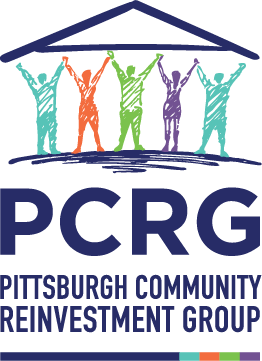Federal
We live in an extraordinary time in American history — one marked by rapid deregulation, program rollbacks, government employee layoffs, and constitutional challenges. The pace of change is unprecedented, making it more critical than ever to stay informed about federal actions that impact our communities and daily lives.
Presidential Executive Orders: Sweeping Policy Shifts
Executive orders have become a primary tool for enacting significant policy changes. Recent Trump Executive Orders have accelerated deregulation across various sectors, altered federal program eligibility, and challenged administrative procedures. Over 100 lawsuits have been filed challenging various executive orders, with and organizations actively tracking these challenges.
HUD Budget Cuts
Under the direction of the Department of Government Efficiency (DOGE), the U.S. Department of Housing and Urban Development (HUD) has announced significant reductions in both staffing and program funding, affecting programs like Community Development Block Grant (CDBG), HOME Investment Partnerships and Section 4 — a capacity building program that helps nonprofits with community development and building affordable housing. One estimate estimates a 50% workforce reduction, with an 84% cut in the Office of Community Planning alone.
The National Community Development Association has created a resource to contact members of congress to oppose these cuts.
Consumer Financial Protection Bureau (CFPB) Under Attack
Significant changes are underway at the CFPB, a key agency protecting consumers from predatory financial practices. The recent nomination of Johnathan McKernan as CFPB Director signals a shift in agency priorities, industry stakeholders, consumer advocates and lawmakers closely monitoring policy changes.
The CFPB recently announced it is dropping its lawsuit against Capital One, which has been accused of failing to pay over $2 billion in interest to customers. Read more here.
The Trump administration and congressional Republicans have targeted the CFPB, with DOGE freezing its funding, halting staff work, and closing its office. Additionally, Sen. John Kennedy (R-LA) introduced legislation to roll back Section 1071 of the Dodd-Frank Act, which requires lenders to disclose small business lending data.
"One Big Bill” passes the House Amid Looming Shutdown
The House of Representatives narrowly passed a budget resolution known as the “One Big Bill” by a 217-215 vote. Key provisions include:
$4.5 trillion in tax cuts over the next decade, extending policies from Trump’s first term.
$2 trillion in spending cuts, targeting healthcare and social programs like Medicaid.
Increased funding for border security and domestic energy production.
The Senate, however, prefers a two-step approach, separating defense and security funding from tax cuts and spending reductions. This divide requires negotiations between both chambers.
The government is currently operating under a Continuing Reslolution (CR), maintaining FY 2024 spending levels until March 14, 2025. To prevent a shutdown, Congress must pass another CR or finalize a comprehensive FY 2025 budget. Speaker Mike Johnson has proposed a “clean” stopgap funding measure extending spending levels through September.
State
Govenor Shapiro's Budget Proposal
Gov. Josh Shapiro presented his 2025-26 budget address to the General Assembly. Read the full proposal here.
Key Revenue-Generating Proposals
Legalization of recreational adult-use cannabis
Regulation of skill games
Housing Infrastructure Investments
PCRG welcomed the governor’s focus on housing, including:
$50 million for home repairs
$10 million increase for the Pennsylvania Housing Affordability and Rehabilitation Enhancement (PHARE) fund
$10 million for a first-time homebuyer program
$292 million boost for public transit through an increased sales tax transaction
$750 million for road and bridge repairs over five years legislators have begun appropriations hearings, with the final budget due by June 30.
As part of our 2025 policy agenda. PCRG continues to advocate for policies supporting housing and transit funding. You can monitor the progress of bills we’re advocating for by visiting our Legislative Tracker.
State Housing Policy Hearing State
Rep. Lindsay Powell and the House Democratic Policy Committee convened a hearing on achievable and attainable housing — and challenges — in Pennsylvania. Watch it here.
Key Testimony from PCRG Members:
NeighborWorks Western PA provides homeownership education and partners with financial institutions to develop first-time homebuyer programs.
ACTION Housing helps homeowners with housing preservation and repair programs, including Whole Home Repairs.
The organizations highlighted key issues affecting prospective homeowners, including riding construction costs and high mortgage rates — both of which disparately affect first-time buyers and lower-income families.
PCRG remains committed to advocating for policies that promote sustainable homeownership and will continue working with legislators and partners on this critical issue.
Local
Affordable Housing in Pittsburgh
PCRG stood alongside Hazelwood Initiative, Pittsburgh Land Bank, Urban Redevelopment Authority (URA), and the City of Pittsburgh officials at a press conference celebrating newly constructed homes that will provide affordable homeownership opportunities.
Hazelwood Initiative, in partnership with the Pittsburgh Land Bank and URA, secured sites and initiated development to ensure long-time residents can remain in their communities.
Mayor Ed Gainey highlighted PCRG’s corporate purchasing report, which revealed a nearly 10% increase in corporate purchases of single-family homes in Pittsburgh.
This trend underscores the urgency of initiatives like this, ensuring homes remain in the hands of families rather than speculative, predatory investors.
Through strong partnerships and strategic investments, we can build a future where homeownership is accessible, stable, and a tool for generational wealth.

